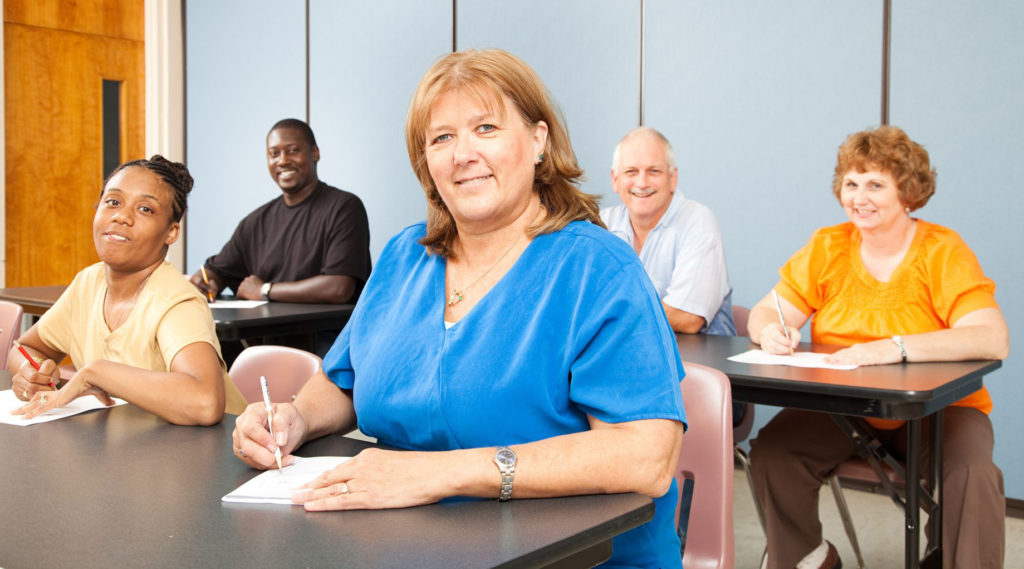
Identify. Understand. Respond. These are the basis tools learned from Mental Health First Aid during a skills-based training course that teaches participants about mental health and substance-use issues.
Brandi Kessler, Community Education Coordinator at Owensboro Health Regional Hospital in Kentucky, has been training community members since late 2018 and has reached religious leaders, human resources professionals, factory supervisors, parents, teachers and medical support staff such as receptionists and billing representatives.
She started the training after noticing a common theme: The majority of non-medical professionals felt uncomfortable asking questions about an individual’s mental health and didn’t know how to approach the topic.
The Mental Health First Aid Training is an 8-hour course. Brandi had several people who wanted mental health tools, but didn’t want such an in-depth training. She developed a one-hour overview that taught the basic tools on how to be comfortable talking, observing and responding to individuals struggling with mental health issues. This year alone, Brandi has reached nearly 1,000 individuals with her one-hour sessions. She also stated that 60% of the one-hour participants wanted to learn more and completed the entire 8-hour training.
“As a community we are getting better at communicating about mental health and starting to lift the stigma and misconceptions around it,” Brandi said. “We are definitely headed in the right direction.”
Three hundred and fifty miles away, Lindsey Bowers, Director of Marketing for Behavioral Health at White River Medical Center in Batesville, Arkansas, is also training the community on Mental Health First Aid, but in a slightly different way. Lindsey is certified in Youth Mental Health First Aid and spends a lot of time in schools.
“Unfortunately, our community has been impacted by the silent epidemic of youth suicide,” Lindsey said. “As the behavioral health experts in the community, this is one of the best ways that our program can give back to the community,” she said.
This summer Lindsey trained the entire staff of two area schools on Youth Mental Health First Aid. She explains the program is not about learning to diagnose an illness, it is about observing changes in behaviors and assessing situations for safety risks. Lindsey compared it to CPR Training.
“The purpose of CPR training is to help people recognize and respond appropriately to cardiac and breathing issues and to know how to immediately respond to an ill person until professional medical personnel arrive and take over. Mental Health First Aid is exactly that—knowing what to do in a situation to keep an individual who is experiencing a mental health challenge safe until a trained mental health professional can take over,” she said.
Lindsey is getting positive feedback on training surveys with participants stating improved comfort levels talking about mental health and observing situations. Additionally, they also mark they feel better prepared to approach youth who may be in a mental health crisis.
Lindsey shared that the process to become a certified trainer is pretty grueling. Regardless, her goal is to get certified to teach Teen and Adult Mental Health First Aid.
“A Youth’s friend is normally the first person to notice if their friend is struggling with something,” she said. “By being a certified Teen Mental Health First Aid Instructor, it’s a great way to further reduce the sigma around mental health in this age group by preparing their friends to respond appropriately, understand that mental disorders occur in every age group and demographic, and potentially save a life.”
Learn more here: https://www.mentalhealthfirstaid.org/


